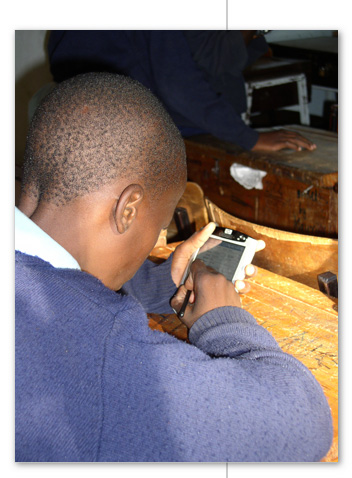


EduVision, a project funded by the BioVision Foundation, seeks to assist countries in improving their education systems by providing appropriate information technology tools for the classroom. To lower the overall cost of primary and secondary education, EduVision aims to replace physical textbooks, notebooks and stationary items with a single integrated system (EELS) which will follow each student throughout the course of their education.
While the primary benefit of EELS is a reduction in the cost of education there are numerous secondary benefits from the system. The first of these is an improvement to the quality of education. The quality of textbooks used in both primary and secondary schools is often substandard, both in terms of the information presented and their condition: they seldom withstand the wear and tear of a year’s usage. This makes it increasingly difficult for teachers to provide the pupils with a quality education. Through EELS’s continually updating content, the information presented to teachers and students will be relevant, up-to-date and easily customized for different learning environments.
Furthermore, the multimedia capability of EELS allows students and teachers access to information in an unprecedented manner. Instead of poorly printed black-and-white textbooks students will have access to multimedia content such as photographs, sound clips and even video clips. At the same students will be able to access an electronic library of vast proportions. All of this comes at a lower cost than their current textbooks. At the time of manufacturing the hard disks of the BaseStation units are stocked with electronic books, journals and other information resources giving the students access to a quantity of information that, in paper form, would fill a large library.
An additional "side" benefit of EELS is the effect that it will have on bridging the digital divide that exists between the more and less developed countries of the world. This technological divide grows at an ever-increasing rate. While progress in the high-technology sectors has been achieved in many poorer countries, this is often, if not always, confined to capital cities, and even there in to limited and privileged percentages of the population. With the world’s collective future becoming more tied to technology with each passing day, the continued existence, not to mention growth, of this digital divide could have a disastrous impact on future developmental progress.